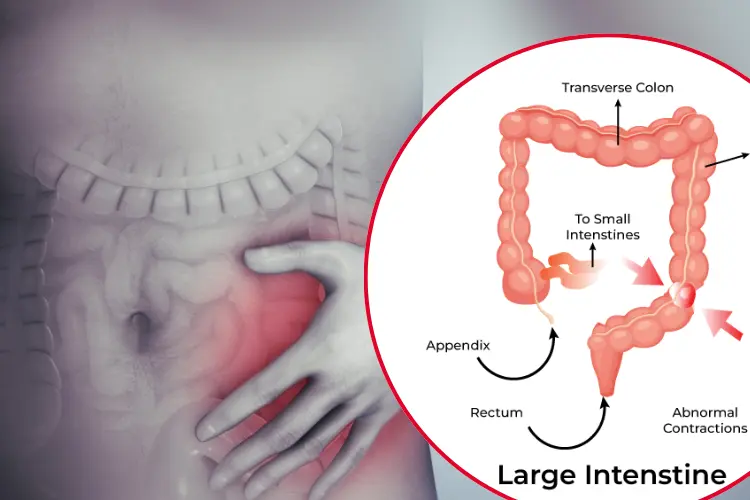Do you often experience stomach pain, bloating, or irregular bowel movements? These could be signs of Irritable Bowel Syndrome (IBS), a common but manageable condition that affects the digestive system. If you suspect that IBS might be the culprit behind your discomfort, read on to understand the symptoms, causes, and how to manage them effectively.
What is IBS?
IBS, or Irritable Bowel Syndrome, is a chronic disorder that impacts the large intestine. It's characterized by a group of symptoms that can cause significant discomfort and affect your daily life. Understanding these symptoms is the first step toward managing IBS.
Symptoms of IBS: Are You Experiencing These?
-
Abdominal Pain and Cramping: Often occurring after meals and relieved by bowel movements.
-
Bloating and Gas: Persistent feelings of fullness and swelling in your abdomen.
-
Diarrhea and/or Constipation: Frequent diarrhea, constipation, or alternating between the two.
-
Changes in Bowel Movements: Stools that vary in consistency and a sensation of incomplete evacuation.
If these symptoms sound familiar, it’s time to consider the possibility of IBS and take steps to manage it
Causes of IBS: What Might Be Triggering Your Symptoms?
While the exact cause of IBS remains unclear, several factors may contribute to its development:
-
Gut-Brain Interaction: Disruptions in communication between your brain and digestive system.
-
Muscle Contractions in the Gut: Stronger or prolonged contractions can lead to bloating, gas, and diarrhea.
-
Infections: A severe infection or overgrowth of bacteria in the intestines.
-
Stress: High stress levels can exacerbate IBS symptoms.
Managing IBS: Steps to Take Control of Your Health
Dietary Adjustments: Your diet plays a crucial role in managing IBS symptoms. Here are some tips:
-
Low FODMAP Diet: Avoid foods high in certain carbohydrates that can ferment in the gut, such as some fruits, vegetables, and dairy products.
-
Fiber Management: Soluble fiber (found in oats and beans) can help, but be cautious with insoluble fiber (found in whole grains and some vegetables).
-
Stay Hydrated: Drink plenty of water to aid digestion and maintain regular bowel movements.
Lifestyle Changes: Simple adjustments can significantly impact your IBS symptoms:
-
Regular Exercise: Helps reduce stress and supports healthy digestion.
-
Stress Reduction: Practices like yoga, meditation, and deep breathing can alleviate stress.
-
Adequate Sleep: Ensure you get enough sleep, as poor sleep can worsen IBS symptoms.
Medical Treatments: Sometimes, dietary and lifestyle changes aren’t enough. Here are some medical options:
-
Antispasmodics: These medications can reduce abdominal pain and cramping.
-
Laxatives or Antidiarrheals: Depending on your symptoms, these can help manage bowel movements.
-
Probiotics: Supplements that can help balance the bacteria in your gut.
If you're dealing with recurring digestive issues, it might be time to explore the possibility of IBS. Understanding your symptoms and triggers is key to managing the condition effectively. By making thoughtful dietary choices, adopting a healthier lifestyle, and seeking medical advice when necessary, you can take control of your health and improve your quality of life. Always consult with a healthcare professional to tailor a management plan to your specific needs.







